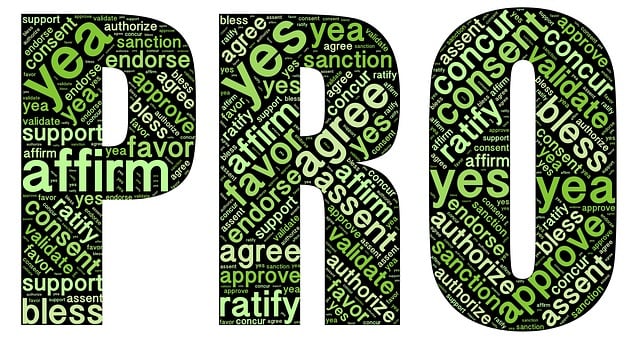In the UK, Translation services for Informed Consent Forms UK are vital for legal compliance, patient safety, and effective communication in diverse healthcare settings. These services ensure that non-native speakers understand complex medical procedures, risks, and benefits, facilitating voluntary and informed consent. Professional translators skilled in both languages and medical terminology bridge language barriers, fostering trust and reducing errors. Strict ethical guidelines and accurate adaptations to cultural norms are essential for maintaining the form's original intent. Digital tools and online platforms further streamline the process, enabling faster patient recruitment and improved research inclusivity while meeting stringent regulatory requirements.
In the UK, understanding consent forms is crucial for navigating legal requirements and ensuring patient rights. This article explores the intricacies of consent forms from a legal perspective, highlighting their significance in healthcare settings. We delve into the role of translation services to bridge language barriers, ensure compliance, and facilitate effective communication. Key elements of informed consent forms are dissected, along with best practices for accurate translation and localization. Real-world case studies illustrate successful implementations, and valuable resources are provided for efficient translation processes, emphasizing the vital contribution of translation services in managing Informed Consent Forms UK-wide.
- Understanding Consent Forms in the UK: A Legal Perspective
- The Role of Translation Services in Ensuring Compliance
- Key Elements of an Informed Consent Form
- Navigating Language Barriers in Healthcare Settings
- Best Practices for Accurate Translation and Localization
- Case Studies: Successful Implementation of Consent Forms
- Resources and Tools for Efficient Translation Processes
Understanding Consent Forms in the UK: A Legal Perspective

In the United Kingdom, consent forms play a pivotal role in ensuring compliance with legal regulations across various sectors. These documents serve as a written agreement between two or more parties, providing explicit permission for specific actions or procedures. When it comes to medical research, clinical trials, and patient care, understanding informed consent is essential. It involves clearly communicating the nature of a procedure, potential risks and benefits, and ensuring patients (or their legal representatives) voluntarily agree without coercion.
The UK’s regulatory framework emphasizes the importance of accurate translation services for informed consent forms. This is particularly relevant in multicultural and multilingual settings where participants may not be fluent in English. Professional translation services ensure that all individuals can fully comprehend the content, enabling them to make informed decisions. Translation accuracy is critical to avoid legal complications and protect the rights of those giving their consent.
The Role of Translation Services in Ensuring Compliance

In today’s globalised world, organisations in the UK often deal with participants or patients from diverse linguistic backgrounds. This is where translation services play a vital role in ensuring compliance with regulations, particularly when it comes to informed consent forms. Accurate and professional translation ensures that every individual understands their rights, risks, and obligations as outlined in the form, regardless of their first language.
Translation services for Informed Consent Forms UK must be trusted and reliable, adhering to strict ethical guidelines. They should employ qualified translators who are not only fluent in both the source and target languages but also have a strong understanding of the medical or legal terminology involved. This guarantees that complex information is conveyed accurately, minimising the risk of misinterpretation or confusion.
Key Elements of an Informed Consent Form

When creating an Informed Consent Form (ICF) for research or medical procedures in the UK, several key elements must be included to ensure compliance with regulations and ethical standards. One of the most critical components is a clear and concise explanation of the procedure, including its purpose, potential risks, benefits, and alternatives. This section should be easily understandable for participants, often requiring translation services for non-native speakers, to guarantee informed decision-making.
Additionally, ICFs must outline the participant’s rights, such as the right to withdraw consent at any time without prejudice, understand their data protection status, and know who will access their information. It should also provide contact details for researchers or healthcare professionals to answer any questions or address concerns. These elements collectively empower participants to make informed choices about their involvement in research or medical treatments.
Navigating Language Barriers in Healthcare Settings

Navigating language barriers in healthcare settings is a critical aspect of ensuring effective communication and patient safety, especially when dealing with informed consent forms in the UK. With a diverse population, it’s essential to provide accessible care that respects every patient’s right to understand their medical options. One of the primary challenges arises from non-English speaking individuals who require translation services for informed consent forms.
Translation services play a vital role here, offering professional interpretation and ensuring patients receive clear explanations of procedures, risks, and benefits. These services help bridge the gap between healthcare providers and patients with different linguistic backgrounds. Accurate translations are crucial to obtain valid consent, as they empower patients to make informed decisions about their health, thereby fostering trust and respect within the healthcare system.
Best Practices for Accurate Translation and Localization

When dealing with sensitive documents like consent forms, accuracy is paramount, especially in a multicultural society like the UK. For Translation services for Informed Consent Forms UK, best practices include engaging professional translators who are not only fluent in both languages but also have expertise in legal or medical terminology. This ensures that technical terms are translated accurately and consistently, preserving the form’s original intent and meaning.
Localization is another critical aspect. It involves adapting the content to fit cultural norms and preferences while maintaining its essence. For instance, certain phrases or concepts might not directly translate, so localizers must make informed decisions to ensure comprehension across diverse reader groups. This meticulous approach guarantees that UK citizens, regardless of their linguistic or cultural background, can fully understand and comply with the consent form’s requirements.
Case Studies: Successful Implementation of Consent Forms

In today’s digital era, organizations across various sectors in the UK are recognizing the importance of clear and comprehensive consent forms to ensure compliance with regulations. Case studies highlight successful implementations where translation services for informed consent forms have played a pivotal role. For instance, healthcare providers have utilized these services to bridge communication gaps between patients from diverse linguistic backgrounds, ensuring every individual understands their rights and responsibilities.
This approach has not only improved patient satisfaction but also reduced the risk of medical errors stemming from miscommunication. Similarly, research institutions have adopted similar strategies, translating consent forms into multiple languages to recruit a broader participant pool for clinical trials, thereby enriching the diversity and validity of research outcomes. These examples underscore the value of professional translation in enhancing transparency and fostering trust between organizations, participants, and patients.
Resources and Tools for Efficient Translation Processes

When dealing with sensitive documents like informed consent forms, ensuring accurate and compliant translation is paramount. The UK’s regulatory landscape demands precision and adherence to legal standards. Fortunately, a plethora of resources and tools are available to streamline the translation process for these critical documents. Professional translation services specialising in medical or legal texts can provide expert support, guaranteeing the utmost accuracy. These services often employ native speakers with extensive experience, ensuring not just linguistic proficiency but also a deep understanding of the nuances required in such forms.
Online platforms and software have further simplified the translation process. Many tools now offer machine translation coupled with human review, providing quick turnaround times without sacrificing quality. For those dealing with large volumes of consent forms or recurring translations, these resources can be invaluable. They enable efficient management of projects, ensuring that every document is translated according to UK regulations, thereby facilitating faster patient recruitment and informed decision-making processes.
When it comes to handling sensitive medical information in the UK, consent forms are an indispensable tool. Ensuring these forms are legally compliant and accessible to all patients, regardless of language background, is paramount. This involves integrating professional translation services that accurately convey crucial information while preserving legal validity. By adhering to best practices in translation and localization, healthcare providers can effectively navigate language barriers, foster patient understanding, and uphold the highest standards of care. The resources and case studies presented offer valuable insights into this essential process, highlighting the transformative role of translation services in implementing informed consent forms within the UK healthcare system.



